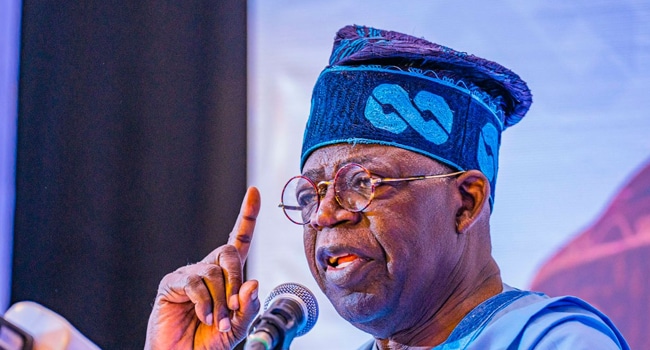President Bola Ahmed Tinubu was sworn in on Monday, May 29 as the 5th president of the Federal Republic of Nigeria, under the current civilian democratic dispensation which began in 1999. The occasion was marked with great pomp with dignitaries from within and outside Nigeria in attendance.
President Tinubu emerged as president in a fiercely contested election in which Nigerians expressed their hopes and expectations for a better turn of events from their current state of uncertainty amid the dire socio-economic circumstances in the country.
Succeeding President Muhammadu Buhari whose tenure ended after the constitutionally allowed two terms of eight years, Nigerians were naturally interested to hear from President Tinubu, what he had in store for them in his inaugural address to the nation during his swearing-in.
In this regard, by all considerations, President Tinubu’s inaugural speech contained a mixed bag of reality and hope.
In acknowledging the reality of our current situation, President Tinubu said in his speech, “We have endured hardships that would have made other societies crumble’’. On this, the president then challenged Nigerians with a poignant poser; “The question we now ask is whether to remain faithful to the work inherent in building a better society or retreat into the shadows of our unmet potentials.’’
Accordingly, the president stated that the mission of his administration “is to improve our way of life in a manner that nurtures our humanity, encourages compassion towards one another and duly rewards our collective effort to resolve the social ills that seek to divide us.’’
In this endeavour, the president enunciated five principles that will guide his administration namely; impartial governance according to the constitution and rule of law, defence of the nation from terror and all forms of criminality, economic growth and development through job creation, food security and end to extreme poverty, prominence to women and youth and championing a credit culture that will discourage corruption while strengthening the effectiveness and efficiency of the anti-corruption agencies.
Further in the course of the speech, Tinubu touched on some critical areas of our national life to which he promised to give priority. These include security, where he pledged to change the operational doctrine and architecture, the economy, where the emphasis will be on providing a stimulus for growth, industrial production, manufacturing, power generation, job creation, agriculture, infrastructure, fuel subsidy, monetary policy and foreign policy.
All things considered as a statement of intent on his mission as president, Tinubu’s inaugural speech will sound reassuring to Nigerians seeking solutions to the current social and economic uncertainties in the nation. The president practically spoke to all the major issues bedevilling the country, a sign that he understood the task awaiting him.
Indeed, the president has demonstrated by his recent actions that he will not prevaricate on taking decisive actions necessary to tackle contentious issues in the country. He has in this wise called on the security and law enforcement agencies to step up their synergy in security operations in the country to achieve the desired success. This, no doubt is in keeping with his pledge to change the operational doctrine and architecture of security outfits in the country.
By far the most telling decision that President Tinubu has taken in furtherance of his inaugural address is the removal of subsidy on petroleum products in the country which some Nigerians have called for an amendment to its implementation format. With the steps taken so far by President Tinubu in furtherance of his pledge in his inaugural address, Nigerians have been given reason to consider that the slogan of “renewed hope’’ which the administration enunciated is real.
But conversely, if despite all this Nigerians remain cautiously sceptical in their disposition towards the promises contained in Tinubu’s inaugural speech, it will be because we have travelled this road before. Successive administrations have come with lofty, high-minded pledges to improve the lives of Nigerians only to falter at the point of implementation, leaving us with a sense of acute disappointment. That is why this must be more than a speech.
President Tinubu should accept this ambivalent attitude as a challenge to remove the doubts in the minds of Nigerians by working assiduously to convince them that he is true to his pledge. He must work with all relevant stakeholders, especially the governors and lawmakers to achieve his goals. He should appoint qualified persons to fill all the positions.
There should be no square pegs in round holes. He should consult widely on issues and ensure that the interest of all Nigerians come first. In other words, he should walk the talk and deliver on the renewed hope his administration has promised

 Join Daily Trust WhatsApp Community For Quick Access To News and Happenings Around You.
Join Daily Trust WhatsApp Community For Quick Access To News and Happenings Around You.
